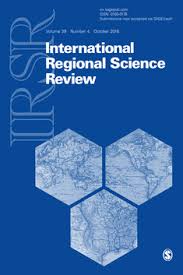
Benchmark Value-added Chains and Regional Clusters in R&D-intensive Industries
Although the phase of euphoria seems to be over, policy makers and regional agencies have maintained their interest in cluster policy. Modern cluster theory provides reasons for positive external effects that may accrue from interaction in a group of proximate enterprises operating in common and related fields. Although there has been some progress in locating clusters, in most cases only limited knowledge on the geographical extent of regional clusters has been established. In the present article, we present a hybrid approach to cluster identification. Dominant buyer–supplier relationships are derived by qualitative input–output analysis from national input–output tables, and potential regional clusters are identified by spatial scanning. This procedure is employed to identify clusters of German research and development-intensive industries. A sensitivity analysis reveals good robustness properties of the hybrid approach with respect to variations in the quantitative cluster composition.





